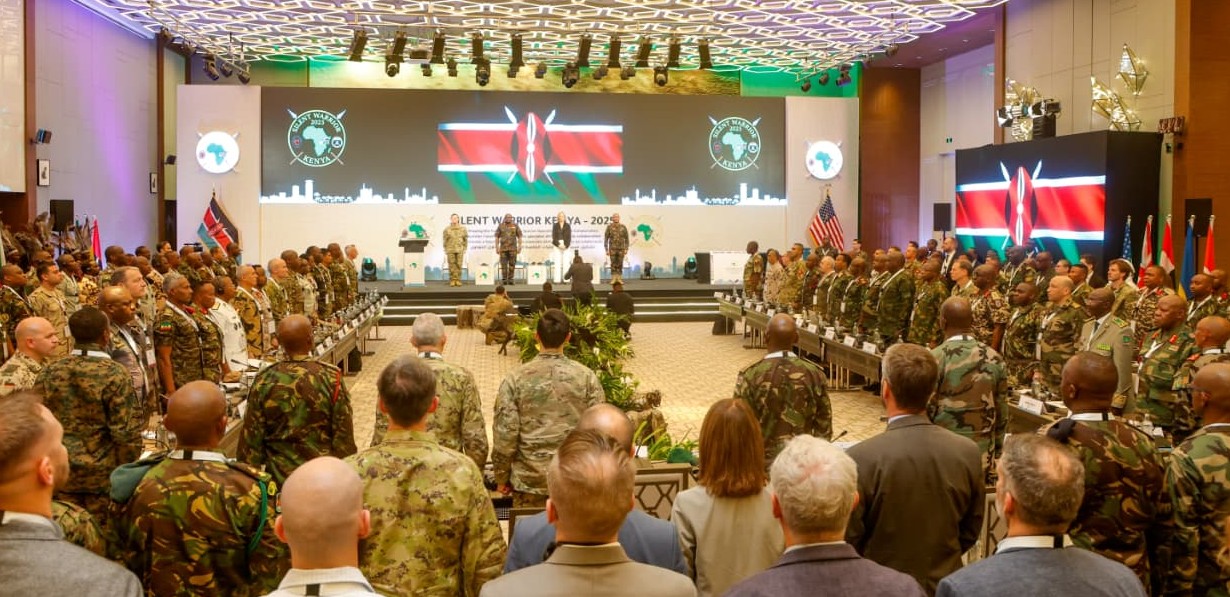ODPP opposes bail for ex-SSU officers accused of abducting, killing two foreigners and Kenyan driver

The officers are accused of involvement in the disappearance and suspected killing of two foreign nationals, Mohamed Zaid Sami Kidwai and Zulfiqar Ahmed Khan, along with their Kenyan driver, Nicodemus Mwania Mwange.
The Office of the Director of Public Prosecutions (ODPP) has asked the Kiambu High Court to deny bail to 15 officers from the disbanded Special Service Unit (SSU), citing serious national security concerns, the risk of witness interference, and the gravity of the charges they face, including abduction and murder.
The officers are accused of involvement in the disappearance and suspected killing of two foreign nationals, Mohamed Zaid Sami Kidwai and Zulfiqar Ahmed Khan, along with their Kenyan driver, Nicodemus Mwania Mwange.
More To Read
- 17 diplomatic missions condemn killings, urge independent inquiry in Tanzania
- US reviews Tanzania ties after UN reports 700 post-election killings and widespread violence
- Wajir MCAs demand answers over rising abductions after two men vanish
- ODPP recommends public inquest into Daystar student Lonah Kathambi’s death after CCTV reveals fall
- DPP calls for stronger inter-agency action on hate speech and incitement cases
- Only 12 of 58 EACC corruption cases cleared for prosecution by DPP over three-month period
In an affidavit sworn by Superintendent Michael Kirui, the ODPP alleges that the accused—drawn from the former SSU, the National Intelligence Service (NIS), and the Kenya Wildlife Service (KWS)—were part of a clandestine multi-agency operation that led to the victims' disappearance.
The three were last seen near the Southern Bypass interchange at Ole Sereni Hotel on the night of July 22–23, 2022, and have not been seen or heard from since.
'Sphere of influence'
Kirui states that investigations were significantly delayed due to what the State describes as a "sphere of influence" exercised by the accused, which allegedly interfered with evidence collection and posed threats to both witnesses and investigators.
The victims’ bodies have never been recovered, and they have now been missing for more than 1,100 days. Kirui notes that this prolonged absence has denied their families the closure of a proper burial.
“This is not just a case of murder—it constitutes crimes against humanity and enforced disappearance,” he states, citing Kenya’s obligations under the International Crimes Act and the United Nations Convention on Enforced Disappearances.
The affidavit further alleges that the suspects have engaged in surveillance and intimidation tactics similar to those reportedly used against the victims. Officers working on the case claim they have been followed, threatened, and warned directly by the accused that their personal and family information is known to them.
Kirui also claims that during a court appearance at the Kahawa Law Courts in December 2022, some of the suspects confronted investigators and warned them they would "pay" if charges were filed. Since then, he says, key officers have experienced stalking and surveillance believed to be linked to those threats.
Active roles
Additional concerns raised in the affidavit include the fact that some of the accused still occupy active roles in Kenya’s security agencies and have access to government-issued items such as stores, uniforms, and certificates of appointment. According to Kirui, this access presents a risk that they could impersonate active officers and obstruct justice.
He further alleges that the suspects held virtual strategy meetings—some from Pangani Police Station—intended to derail the investigation by rallying support from sympathetic individuals within the police and intelligence communities.
The prosecution contends that the accused have compelling reasons to flee, given the seriousness of the charges and the possibility of capital punishment. It also argues that their ranks, training, and deep ties within the security sector make them a serious threat to witnesses.
The affidavit describes the accused as part of a “criminal enterprise” embedded within the state, capable of compromising judicial proceedings if released on bail.
The ODPP maintains that the defence has not presented any exceptional circumstances that would justify bail and asserts that releasing the suspects would go against the interests of justice, national security, and the rights of the victims’ families.
The disappearance of Zaid, Zulfiqar, and their driver drew widespread national and international condemnation, intensifying scrutiny on the government over a pattern of extrajudicial killings and enforced disappearances allegedly linked to rogue elements within the security forces.
The SSU was disbanded in 2022 following revelations of systemic abuse and covert operations targeting civilians.
Top Stories Today












































